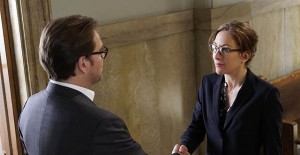Source of article DOAR Litigation Consulting.

In the sixteenth edition of his weekly column in Law360, DOAR’s real-life New York City Jury Consultant and Psychologist reviews the fictional NYC Jury Consultant/Psychologist on the television series “Bull,” focusing on what litigation is really like in the trenches.
In this episode, we learn that attorneys become profoundly talented tacticians after working with a jury consultant a couple of times. Let that sink in for a moment. But then we also learn that the only way that Bull is successful is by living in a world in which judges are easygoing about all those pesky rules of evidence. You and I may or may not be living in a computer simulation (see presidential election, persistence of evil), but Bull is. The Case of the Dead Parachutists This week, Bull works against the attorney Liberty, someone we have seen him work with together in the past when she was inexperienced. He taught her how to win, and now she is a talented trial attorney (let it sink in). More importantly, both of the actors playing Bull and Liberty have retweeted this column, so I wanted them both to win, and they kind of do, so we are all winners, but mostly me. The case is about a governor who dies in a parachuting accident along with the owner of the parachuting company who tries to save him. His wife, represented by Liberty, sues the company, represented by Bull with the president’s brother as trial attorney (played by a semi-famous actor, hint hint). There is a jury selection scene in which Liberty figures out Bull’s strategy and works against it, but most of the consulting services provided this week are in illicit case investigation and live murder accusations during trial testimony. First, Bull’s team investigates by having Danny pretend to be a reporter and having someone believe that they are divulging information off the record. Then she uses her FBI contacts to read classified information about an investigation of the governor. Meanwhile, Cable sits forlornly, not breaking any laws. Next, Bull gets the idea that maybe someone murdered the governor and that the best way to figure out who it could be is to put everyone on the stand for cross-examinations (by a semi-famous actor, hint hint — you’ll see, this is going to pay off) to reveal the truth by accusing each of them of murder in open court. This is how Bull thinks court works, but it actually does, because the judge, like every other judge on the show, is totally chill. Mid-trial, in open court, Bull’s attorney (semi-famous actor) reveals classified FBI information of an investigation of the governor. “I’ll allow it,” the judge says, because of the legal principle of “whatevs.” Later, as Bull tries to figure out who the killer is, Bull’s attorney (semi-famous actor) tells the court that the governor had been having an affair with the seated witness’s wife, suggesting that perhaps the witness wanted to murder the governor. The judge is down with the jury hearing this murder accusation too. Later, Liberty tells a witness in open court that probably the deceased parachuting president murdered the governor due to some upcoming gubernatorial legislation. The judge is fine with this murder accusation too. Funnily enough, though, it was all for naught because none of these people murdered the governor after all, so never mind. The brother/trial attorney/semi-famous actor did it. Whoops! Is That What Jury Consulting is Like? The big difference between what was featured this week and actual jury consulting is that everything that happened at trial is the stuff that one unlearns the first week of being a jury consultant. One (OK, it was me at every meeting) only has to have one meeting with an attorney as a young upstart to learn that you cannot just spout off wacky theories in open court without any proof, and you cannot switch legal theories multiple times in the same trial. Even if that young upstart was totally right, old man. (See the discursive and snotty legal column “I Will Bury You, Old Man” by Anonymous). No judge will allow you to just say whatever without any evidentiary foundation. That is what columns are for. Next week, more autobiographical digressions forced to look like they have some relevance to that week’s episode. The post Talking Bull, Episode Sixteen, A Real Jury Consultant Watches a Fictional One appeared first on DOAR.

